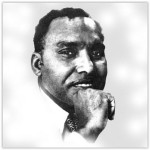(More Information On African Americans)
 Dr. Samuel L. Kountz (October 30, 1930 – December 23, 1981) was an African-American kidney transplantation surgeon from Lexa, Arkansas. He was most distinguished for his pioneering work in the field of kidney transplantations, and in research, discoveries, and inventions in Renal Science. In 1961, while working with Dr. Roy Cohn at the Stanford University Medical Center, he performed the first successful Kidney transplant between humans who were not identical twins. Six years later, he and a team of researchers at the University of California, San Francisco, developed the prototype for the Belzer kidney perfusion machine, a device that can preserve kidneys for up to 50 hours from the time they are taken from a donor’s body. It is now standard equipment in hospitals and research laboratories around the world.
Dr. Samuel L. Kountz (October 30, 1930 – December 23, 1981) was an African-American kidney transplantation surgeon from Lexa, Arkansas. He was most distinguished for his pioneering work in the field of kidney transplantations, and in research, discoveries, and inventions in Renal Science. In 1961, while working with Dr. Roy Cohn at the Stanford University Medical Center, he performed the first successful Kidney transplant between humans who were not identical twins. Six years later, he and a team of researchers at the University of California, San Francisco, developed the prototype for the Belzer kidney perfusion machine, a device that can preserve kidneys for up to 50 hours from the time they are taken from a donor’s body. It is now standard equipment in hospitals and research laboratories around the world.
Intern, Stanford Service, San Francisco General Hospital, 1958–59; assistant resident, department of surgery, Stanford University School of Medicine, 1959–62; Bank of America Giannini fellow, Hammersmith Hospital, London, 1962–63; Stanford University School of Medicine, senior resident, department of surgery, 1963–64, chief resident, 1964–65, instructor, department of surgery, 1965–66; visiting Fulbright Award professor, United Arab Republic, 1965–66; assistant professor, department of surgery, Stanford University School of Medicine, 1966–67; associate professor, department of surgery, University of California, San Francisco, School of Medicine, 1967–72, professor, 1972; professor and chairman, department of surgery, State University of New York Downstate Medical Center, Brooklyn, and chief of general surgery, Kings County Hospital Center, 1972-77.
While on a lecture tour in South Africa in 1977, Dr. Kountz contracted a crippling brain disease that left him neurologically impaired and confined to his bed, unable to communicate, or care for himself, for the rest of his life. His illness was never diagnosed, and he died on December 23, 1981, at the age of 51. In July 1980 the National Association for the Advancement of Colored People presented an Afro- Academic, Technological, and Scientific Olympics program award, which is a special high school science award for African American students, in his honor. Five years later the World’s First International Symposium on Renal (kidney) Failure in Blacks was dedicated to his memory.
Click Here For More Information







